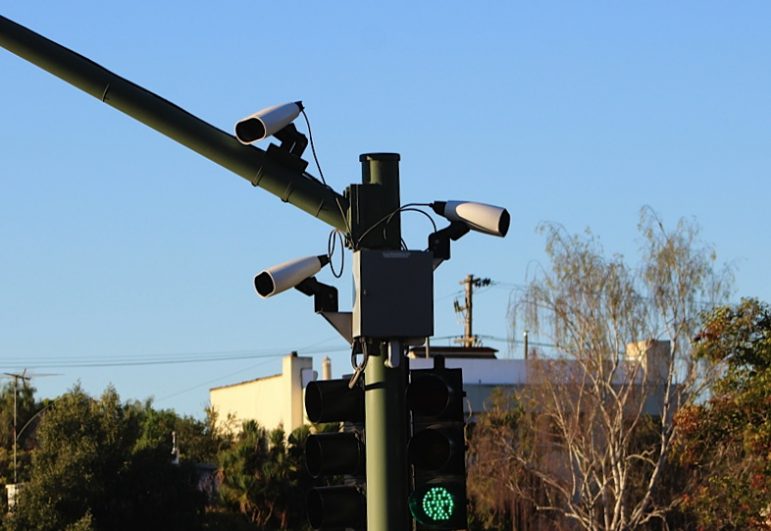This city’s 39 automatic license plate reading cameras (ALPRs), covering 15 local intersections, have recorded the plates of every passing vehicle since their 2013 activation. According to Piedmont police these cameras have played a part in the arrest of 118 suspects, the recovery of 183 stolen or otherwise sought vehicles, and provided leads in more than 100 other cases.

Now city officials are working on a plan to expand the number and locations of ALPRs in Piedmont. Police Chief Jeremy Bowers said he expects to present a plan to the City Council in April or May to equip three additional intersections with cameras. “I see it as a tightening up of the network,” he said this week. “The original network in 2013 was pretty robust.”
City Councilwoman Jen Cavanaugh, the council’s liaison to the city’s Public Safety Commission said the council has been supportive of the ALPRs program within realistic boundaries — cost foremost among them.
“Expanded use of technology has budget implications for implementation, operation, replacement and maintenance, so the full council will review a comprehensive recommendation when it comes before us”, Cavanaugh said.
During a Feb. 4 City Council meeting, Bowers and council members praised ALPRs and their role in helping solve Piedmont crimes, including two recent home-invasion robberies. On Jan. 24, 2018 three armed men ransacked a house on Lorita Avenue; Piedmont’s license plate-reading cameras provided evidence that led to positive identification of the suspects’ car.
On Jan. 12 of this year, three men rang the doorbell of a house on Scenic Avenue, pushed to the ground a young boy who opened the door, and then robbed the house. Bowers and council members said the city’s ALPRs have helped police detectives identify potential suspects in that crime.
Piedmont police Capt. Chris Monahan said new cameras may be placed in the Upper Trestle Glen area, where there has also been several recent incidents.
But there are sometimes complicating factors in deciding where ALPRs can be practically installed. Intersections are generally covered with multiple cameras, requiring multiple places to mount them, and there isn’t always electricity onsite, requiring attendant electrical work. Other physical factors sometimes arise, Monahan said, creating major cost increases from one installation to another.
Another issue is the “Big Brother” factor, the suspicion or fear among some residents that they’re being unduly surveilled, or that their information is being shared without permission or used for undisclosed purposes. Monahan acknowledged that sentiment, but also said, “But when something big happens, everyone wants to see the video.”
Concerns on both sides of this issue may also surface in a community discussion to be held March 5 at the Veterans Memorial Building. That discussion will focus on expanding a separate network of cameras known as “public safety cameras” that will monitor public spaces, not vehicles.
Public safety cameras have a different function than ALPRs. License plate readers see and transmit “hits” on reported plate numbers to multiple law enforcement agencies. Public safety cameras monitor larger swaths of ground for whatever may happen within their view. Their images stay local, sometimes being transmitted to monitors within police stations or dispatch centers.
The city currently has only one such working public safety camera, at Grand and Oakland Avenues, as a pilot project.
Expansions of either camera network will get scrutiny not only from the City Council, but from the city’s Public Safety Committee. Amal Smith, a committee member (and president of the Piedmont Unified School District board), said she’s trying to keep an open mind about ALPRs.
“My inclination is to be very, very careful with this kind of technology, due for the most part to privacy concerns and data security,” said Smith, who balances such concerns with the reality that law enforcement is expected to continue solving crimes despite eroding budgets and dwindling manpower.
At the Feb. 4 City Council meeting, no fears of loss of privacy or “big brother” surveillance were expressed, but there is an ongoing debate among privacy experts about clarifying policies in areas where advancing technology can pit security and privacy concerns against one another.
A few speakers at the February City Council meeting did ask for more ALPRs. “Thirty-five of our people have signed a petition to get cameras after an armed robbery in the neighborhood,” said Piedmont resident Bob Kunselman. “It’s been an ongoing concern.”